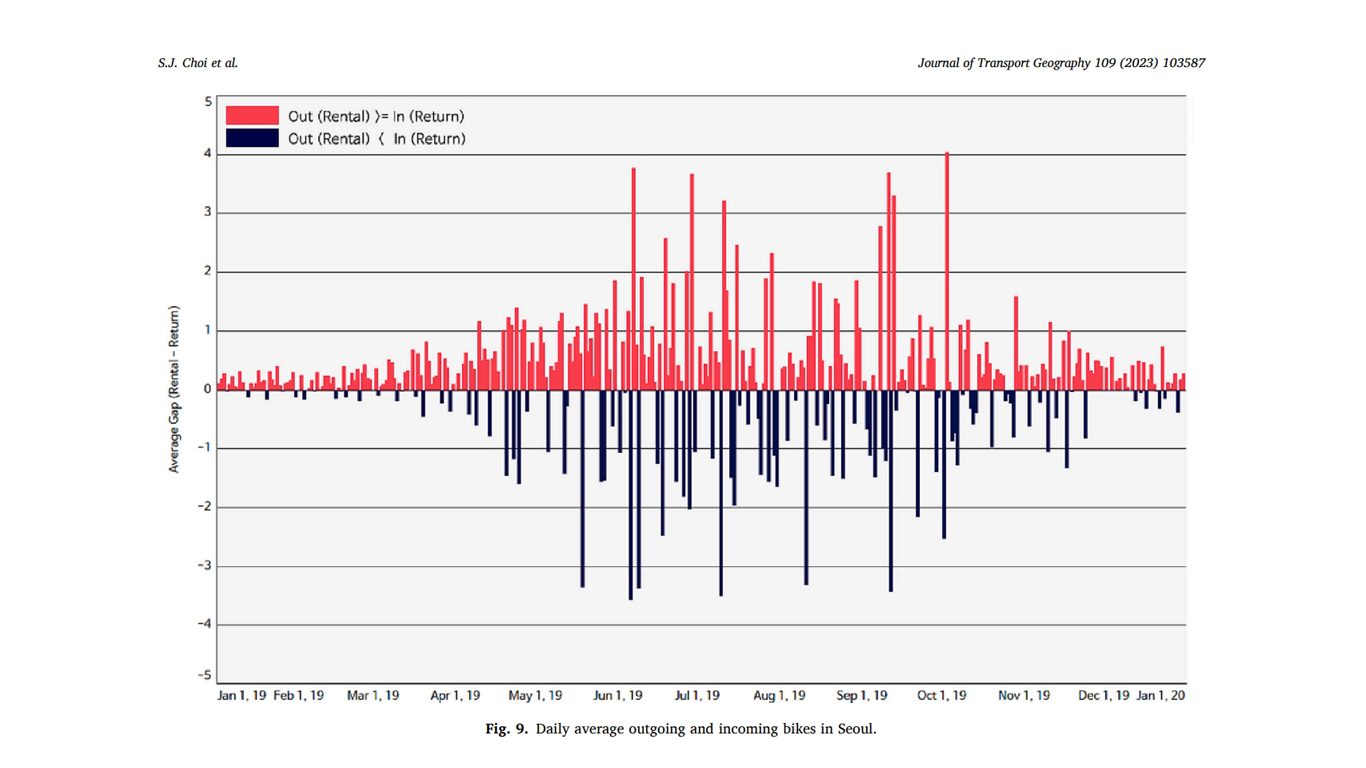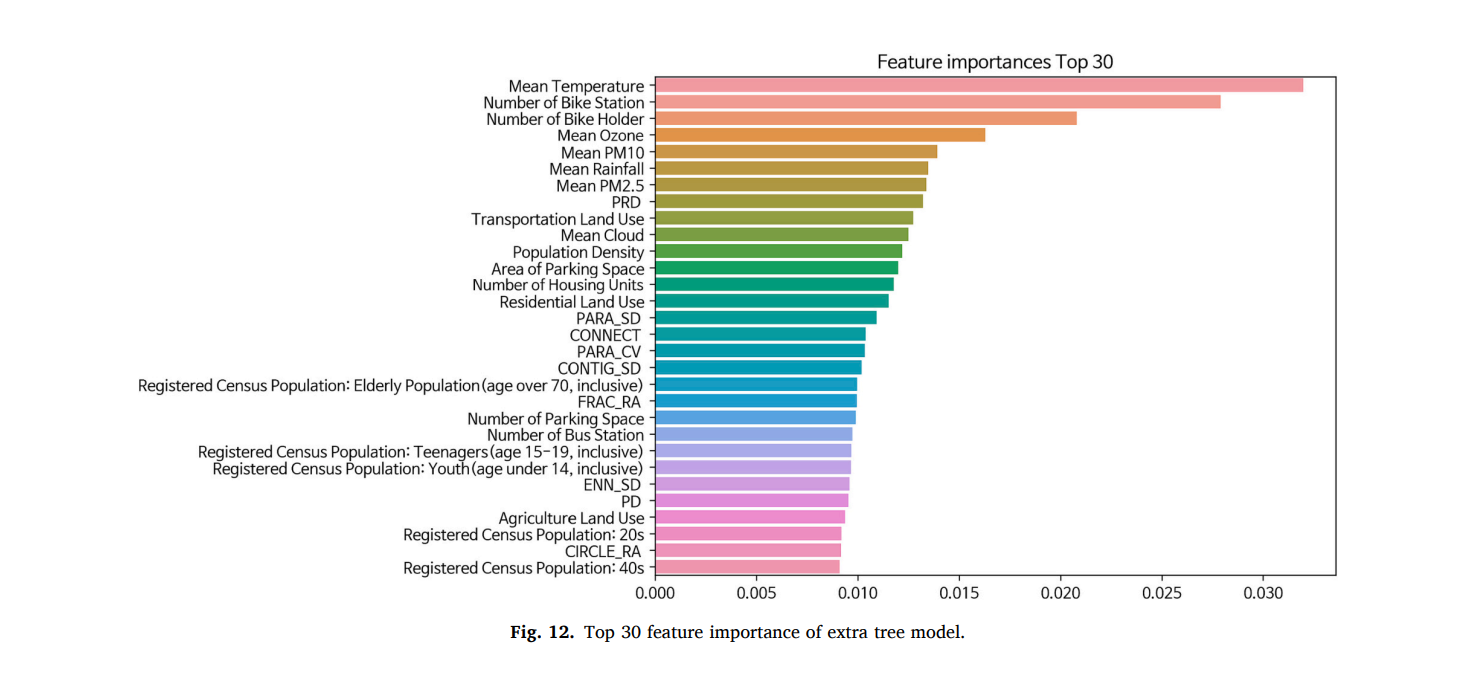Bike-sharing is popular for its health and transportation benefits, but managing bike distribution remains a challenge. This study investigates landscape adjustments as a solution, using FRAGSTATS analysis and public bike-sharing data from Seoul, South Korea. Spatial and temporal bike-sharing patterns are analyzed, identifying hot spots of activity. Machine learning models are then developed to understand how landscape features and other factors contribute to bike-sharing usage discrepancies. Results highlight the significance of weather, transportation land use, and landscape characteristics like shape in influencing bike-sharing. These insights can help operators optimize services and tackle bike redistribution challenges more effectively.







